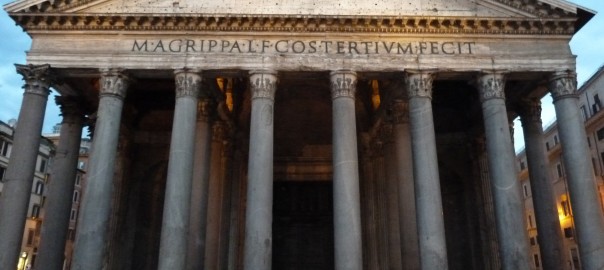Mediterranean Trivium: Earth, Sea, and Culture in Italy
On-site seminar: June 24 – July 4, 2013
The Mediterranean Trivium seminar brought faculty together in Italy to explore firsthand how earth, the environment and culture interact, using this on-site experience to develop curricular innovations that foster multidisciplinary learning by advanced undergraduates.
SAIL Mediterranean Trivium Itinerary
SAIL Mediterranean Trivium Bibliography
Leadership Team Report August2013
Overview
The on-site portion of the seminar provided an opportunity for multidisciplinary study and firsthand experience by examining how the singular geological framework and distinctive ecology of the Mediterranean region shaped Classical, Renaissance and modern cultures. Defined by mountains and the sea, Italy displays the impact of the slowly-changing elements of nature on how people work, live, think, and imagine. It also shows how the more disruptive forces of nature – volcanic eruptions, earthquakes, and floods – affect societies. Once assembled in Italy and at subsequent workshops, it became plain that an alternative trivium, resonant with all the group, was Catastrophe, Apocolypse, and Collapse, these three being abundantly recorded in the Mediterranean and of much contemporary relevance.
The seminar used archaeological and documentary evidence from these periods as well as the geological and ecological record to explore the interplay between people and the natural world over time. With Florence as a base, the seminar participants examined cultural achievements and urban geology in Tuscany, with overnight excursions to the bay of Naples (Vesuvius and Pompeii) and Rome.
The seminar aimed to consider how nature has influenced social organization and modes of thought, and how, in turn, decision-making structures and attitudes toward nature determined how people acted in and on the natural environment. Participants examined the following:
- How natural phenomena affect societies;
- How societies manage the environment;
- How people think about and imagine nature;
- How Classical and Renaissance perspectives inform contemporary society; and
- How to conceive, design, and implement multidisciplinary courses or modules for advanced undergraduates.
The seminar emphasized the perspectives of geology, archaeology, and history, and included contributions from art historians, anthropologists, ecologists, economists, philosophers, and resource managers. Some but not all SAIL participants worked on curricular materials for course in the Mediterranean and Europe. Others developed themes that had been explored in Italy for courses on other continents.
Reading and communication among participants before and after the on-site portion of the seminar are intended to implement the Trivium topic as an example and resource. Teaching / learning materials provided on this site are available for use “as is” by faculty or as examples to guide the creation of new multidisciplinary curricular opportunities for advanced undergraduates at ACM colleges, which can also serve as models for other faculty.
Source: http://www.acm.edu/our_collaborations/SAIL/2013_Seminar.html
Readings:
- Braudel, F. The Mediterranean and the Mediterranean World in the Age of Philip II: Preface to the first edition; Part I (The Role of the Environment), chapters I, II, and IV. [a seminal study on history of and history in the Mediterranean]
- Horden, Peregrine & Nicholas Purcell: The Corrupting Sea (London: Blackwell, 2000): Part 1, Chapter 1, A Geographical Expression, pp. 9-25; and Part 2, ‘Short Distances and Definite Places,’ pp. 53-172 [an important contrasting approach to the region]
